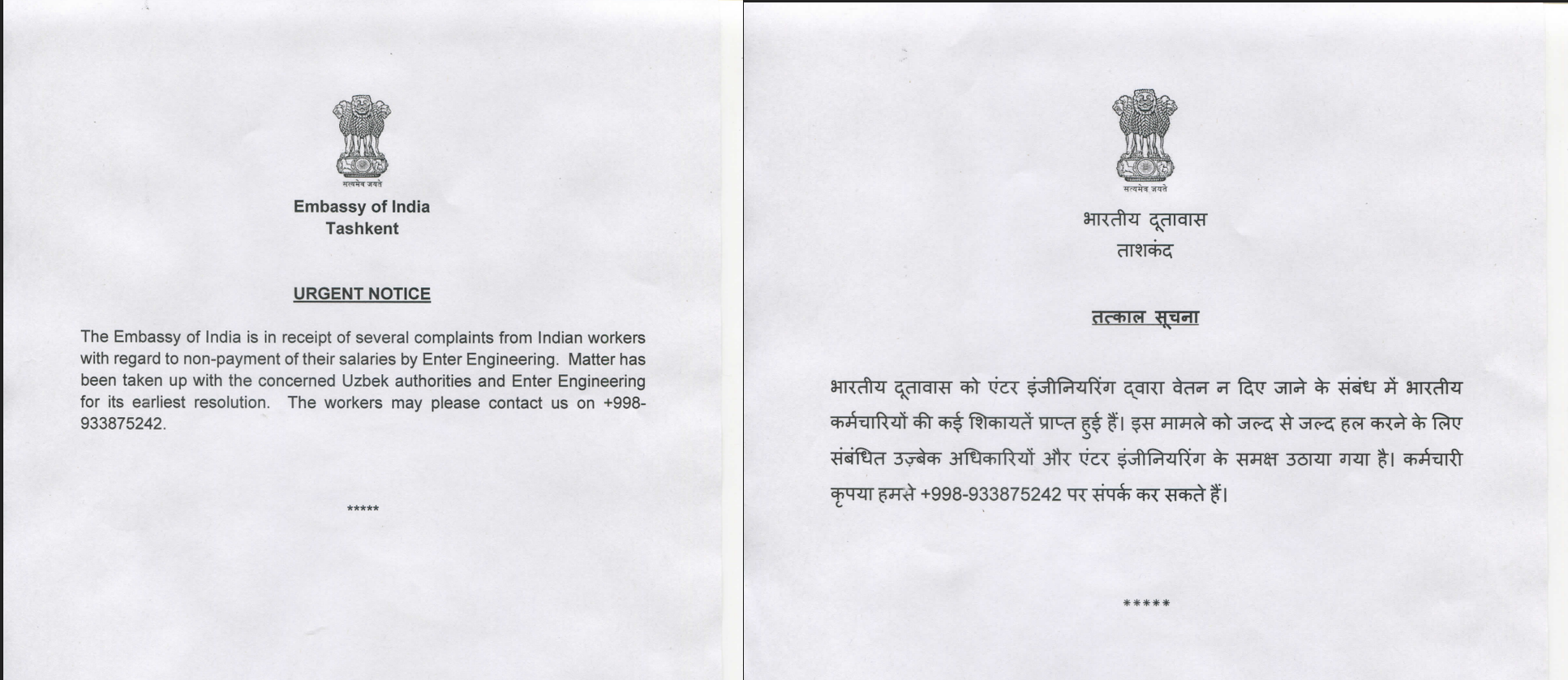Ambassador’s Speech at Inauguration Ceremony of Film Festival
Aziz do’stlar va hurmatli mehmonlar,
It is with great privilege that I, on behalf of the Embassy of India, extend a warm welcome to all of you as we celebrate womanhood – Sashakt Nari – through cinema. I express my sincere thanks to Mr. Shukhratulla Rizayev from the Cinematography Agency of Uzbekistan, the Centre of Cinematography Development, and the Palace of National Cinematic Art of Uzbekistan for their splendid support.
Our esteemed guests from India need no introduction. Ms. Saiyami Kher, Mrs. Gauri Shinde, Mr. Abhishek Bachchan and Mr. R. Balki—we couldn’t have had a better delegation today as we organize the Women Film Festival in Tashkent.
Most of us know they have worked together to create one of the finest movies on a woman’s grit, resilience and determination amidst the agony and pain of being rendered handicap in an accident – Ghoomer. It’s a moving story of a sportswoman and how Anina, with the support of her coach Paddy, re-establishes her worth. The film has justly won several awards, and as we celebrate the cause of womanhood, we unanimously selected Ghoomer for the inauguration.
I am delighted that sportswomen including Olympic champion Svetlana Osipova and Ozoda Sobirjanova have joined us. I am also honoured by the presence of Paralympic champions Naimova Guljanoi and Isokova Ziyodakhon, and women representatives from the Public Association of Disabled People (Inclusive Life).
Thank you to the dear women MPs including Ms. Mavlyuda Khodjaeva, Ms. Gulrukh Agzamova, Ms. Mukhtarova Nazira, Deputy Sports Minister Mr. Makhmudov Shakhrillo, my friends from the diplomatic community and international organizations including the UN, members from the Committee of Family and Women, friends of India, media, artist community, and especially people’s artist and hero of Uzbekistan Ms. Munojat Yulchieva. Your gracious presence means a lot to us.
Indian cinema and actors have remained immensely popular in Central Asia, especially in Uzbekistan. Stalwarts like Raj Kapoor, Amitabh Bachchan, Hema Malini, and Mithun Chakraborty continue to live in people’s hearts. Just about three months ago, we commemorated Mr. Raj Kapoor’s birth centenary and thank the Cinematography Agency of Uzbekistan for installing a bust in his honour at the Alisher Navoi Cinema Palace.
This four-day film festival dedicated to women highlights both the bilateral cooperation in cinema and the greater cause of womanhood. As we endeavour to ensure that women have greater say and voice—especially on issues that impact them—good cinema can be such a transformative experience.
I vividly remember watching iconic movies being screened in this festival—Ghoomer, English Vinglish, Thappad—and coming back feeling both empowered and pensive. In fact, within three months, we are screening English Vinglish twice in Uzbekistan. There’s no doubt that powerful cinema is always an immersive experience, bringing to light issues often unspoken or brushed aside.
I am glad we are among actors and filmmakers who have boldly highlighted such important issues, challenged gender roles, and contributed to a noble cause. Their films have helped facilitate honest conversations on women—their rights, struggles for empowerment, sense of being, needs, and aspirations.
We all understand that a woman’s journey toward empowerment needs men to be supportive as well. Just a few days back, we attended a wonderful event and heard the Hon’ble President’s thoughts on women’s empowerment, rights, and education. I commend Uzbekistan’s efforts in this regard.
In India, government initiatives continue to focus on eliminating gender-based discrimination and violence, creating an enabling ecosystem for women to thrive as agents of social and economic change. The private sector, NGOs, and cinema have all played significant roles in this journey.
While all this continues, I have no doubt in saying that cinema’s power to question stereotypes and drive change is unique and unparalleled. As a recognition of this, we have invited stalwarts from the Indian film industry.
Thank you all, Ms. Saiyami Kher, Ms. Gauri Shinde, Mr. Abhishek Bachchan and Mr. R. Balki for joining us despite your busy schedules. I am especially happy that Ghoomer, a movie on a woman cricketer’s journey, is being screened at a time when India and Uzbekistan are cooperating in cricket and building cricket infrastructure.
During your brief stay, I am sure you have sensed the strong bonds of friendship between India and Uzbekistan. Indian cinema continues to play a commendable role in bringing our people closer. We look forward to hearing your thoughts on this very important subject.
Hindiston va O’zbekiston do’stona aloqalari abadiy bo’lsin!






